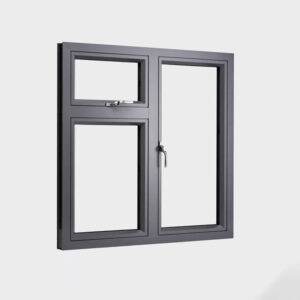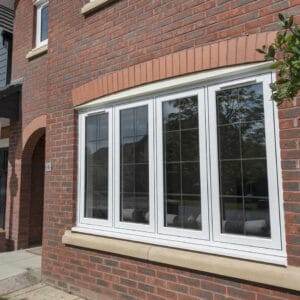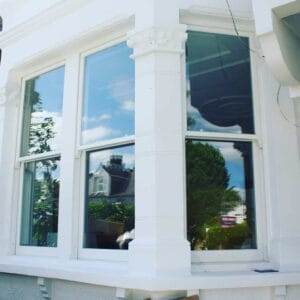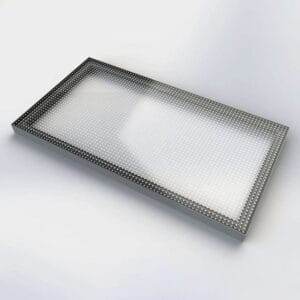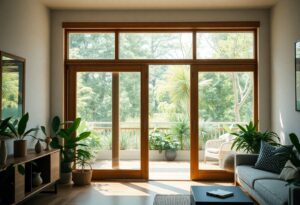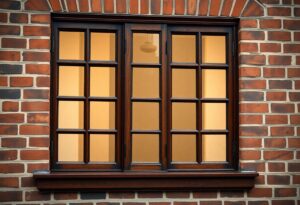Just imagine a home that offers you a peaceful retreat from the outside world, where disruptive sounds such as traffic, construction, or loud neighbours are significantly reduced. Noise reduction windows provide you with not only enhanced comfort, but also lead to better sleep quality and overall well-being. By investing in these specialised windows, you can create a serene environment that promotes relaxation and focus, transforming your daily life. Discover how these windows can make a positive impact on your quality of life and the value of your property.
Understanding Noise Pollution
While many may overlook its presence, noise pollution significantly impacts your daily life and well-being. Characterised by unwanted or harmful sounds from various sources, it manifests as a constant background hum that can undermine your quality of life. Noise pollution not only disrupts your peace but also contributes to a range of health problems, prompting the need for effective solutions such as noise reduction windows.
Types of Noise Pollution
An understanding of the various sources of noise pollution is vital to recognise its pervasive effects. Common sources include:
| Source | Description |
|---|---|
| Traffic | Includes sounds from automobiles, buses, and trains. |
| Industrial activities | Noise generated from factories, construction sites, and machinery. |
| Urban lifestyle distractions | Sounds from entertainment venues, nightlife, and social gatherings. |
| Commercial activities | Noises associated with shops, restaurants, and markets. |
| Household noise | Includes appliances, lawn maintenance, and pets. |
This complex array of sounds can significantly affect your mental health, leading to increased stress and anxiety levels.
Effects of Noise on Health
Pollution from noise has been linked to various physiological and psychological issues. Studies have shown that consistent exposure to high levels of noise can lead to increased stress, sleep disturbances, and even cardiovascular problems. Your overall well-being may be compromised by the persistent chaos of your environment, making awareness of noise pollution vital for your health. (Prioritising a quieter living space can be beneficial.)
Noise affects your body in profound ways, influencing both your physical and mental health. Chronic exposure can elevate cortisol levels, disrupt your sleep cycle, and contribute to long-term cardiovascular diseases. You may also experience heightened anxiety and irritability due to the constant barrage of unwanted sound. (Investing in noise reduction solutions can help mitigate these effects.)
Noise can be debilitating for many, thus understanding its dangerous consequences is vital. You may find that addressing noise pollution can lead to improved mental clarity and a greater sense of peace in your life. Ensuring your environment is as quiet as possible could be one of the best decisions you make for your health.
How Noise Reduction Windows Work
Now that you understand the significance of noise reduction windows, let’s probe into how they function. These windows are specifically designed to minimise outside noise infiltration while enhancing your comfort indoors. By utilising advanced materials and layering techniques, they effectively block and absorb sound waves, allowing you to enjoy a more peaceful environment.
Materials and Technology
Between the various materials used in soundproof windows, double or triple glazing and acoustic laminated glass stand out for their impressive sound dampening capabilities. These innovations create multiple layers of glass separated by gas-filled spaces, which significantly reduces noise transmission. The use of specialised sealants further enhances their effectiveness, ensuring that your home remains a tranquil haven.
Installation and Functionality
An effective installation process encompasses precise measurements and fitting to ensure a tight seal, which is imperative for optimal noise control. Once installed, these windows block and absorb sound waves, preventing them from entering your living space. (Choosing professionals for installation can significantly impact performance.)
As you consider upgrading to noise reduction windows, it’s crucial to ensure they are installed correctly to maximise their potential. Proper sealing and alignment play a significant role in their ability to maintain an efficient barrier against external noise. (Your choice of materials will also influence the overall effectiveness.)
Technology plays a vital role in the evolution of noise reduction windows. By employing innovative designs and materials, such as multiple glazing layers and specialised sound-dampening technologies, you can significantly improve your home’s sound insulation. It’s important to stay informed about the latest advancements to select the best options for your needs.
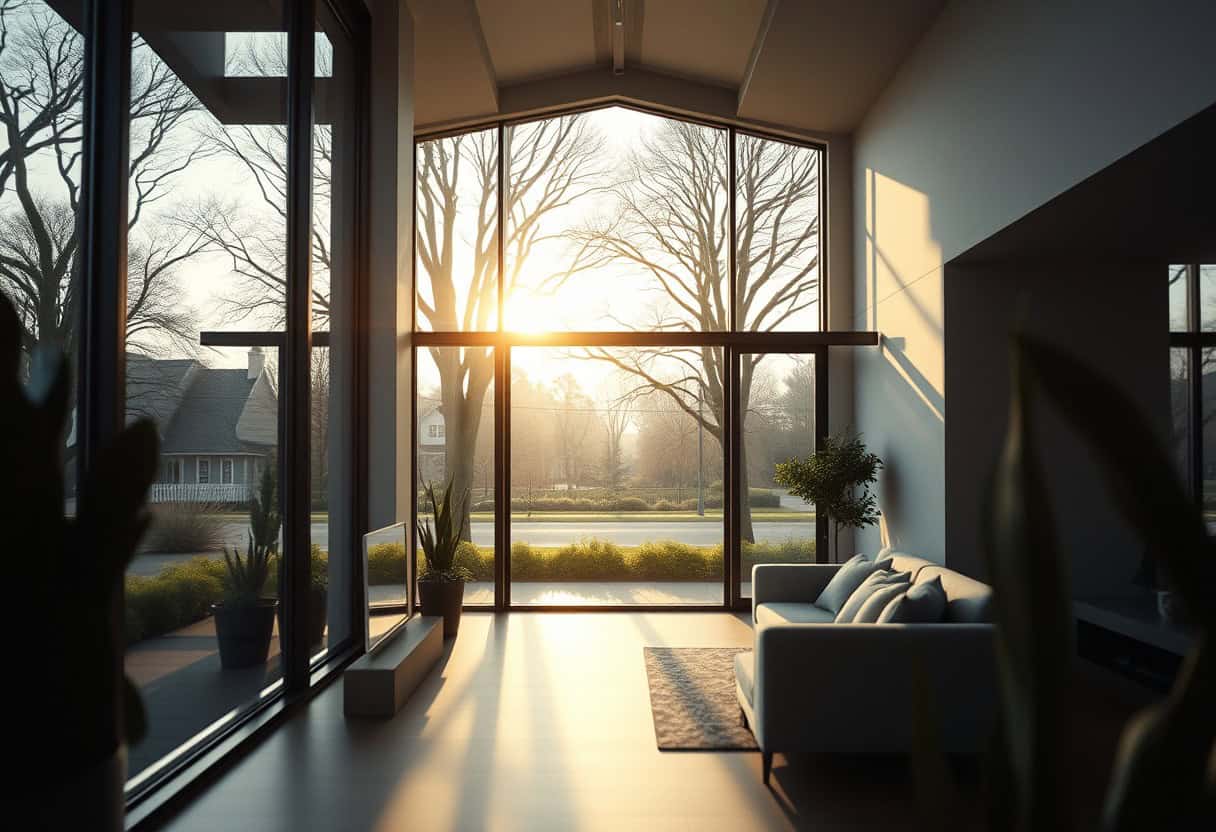
Benefits of Noise Reduction Windows
Some of the significant benefits of noise reduction windows include enhanced comfort and productivity. By minimising disruptive sounds from the outside, you create a tranquil environment that fosters concentration and relaxation. This peaceful atmosphere not only contributes to your overall well-being but also elevates your productivity levels, allowing you to focus better on tasks at hand.
Enhanced Comfort and Productivity
Between reduced distractions and improved quality of life, a quieter environment can significantly enhance your daily activities. The serene surroundings promote better focus, enabling you to accomplish more in less time. Moreover, a comfortable living space positively impacts your mental health, resulting in a happier and more productive day-to-day experience.
Increased Property Value
Between the appeal of a serene environment and the practicality of comfort, investing in noise reduction windows can greatly increase your property’s value. Homes equipped with these windows become more desirable, as potential buyers recognise the benefits of a tranquil living space. Enhancing your property’s appeal through noise insulation can be an important decision that pays off in the long run.
Indeed, property value is often directly linked to livability factors, and noise reduction windows offer you a significant advantage in the market. As more homebuyers seek tranquil settings, your investment in quiet living can set your property apart from others, making it more attractive. Ultimately, upgrading to noise reduction windows can be an important decision that elevates both your enjoyment and your asset’s worth.
Choosing the Right Noise Reduction Window
Your decision on which noise reduction window to choose significantly impacts the comfort of your home. Consider your specific environment and noise level when selecting the ideal window solution. Choosing the right blend of materials and functions ensures effective sound insulation and energy efficiency for your space.
Key Features to Consider
Your selection process should include several imperative features tailored to your needs (Quality sound reduction and energy savings are important decisions). Key features to consider include:
- R-values – Indicating thermal insulation quality.
- STC ratings – Measuring sound transmission loss.
- Frame materials – Affecting durability and insulation properties.
- Glazing options – Impacting both noise reduction and energy efficiency.
After assessing these features, you will be better equipped to make an informed purchase.
Professional vs. DIY Installation
An informed decision will require weighing the benefits of hiring professionals against the DIY installation approach. While skilled professionals offer expertise and the ability to handle complex windows, DIY can save you money and give you a sense of accomplishment. However, you should consider the potential challenges of doing it yourself, from managing tools to ensuring a perfect fit.
Considering the installation process, the expertise of professionals can ensure your windows are properly secured and effectively reduce noise. DIY might appear less expensive initially, but errors can lead to costly repairs or even unsafe conditions. Moreover, professional installation often comes with warranties, whereas DIY lacks this safeguard. The time investment and learning curve required for DIY may outweigh the benefits, making it important to evaluate your skills against the project demands.
Maintenance and Care
Keep your noise reduction windows performing optimally by following a routine maintenance schedule. Regularly clean the glass with a gentle glass cleaner and check seals for wear or damage. Ensure tracks are free from dirt and debris for smooth opening and closing. For more detailed insights, refer to Can New Windows Really Help Reduce Outside Noise?. (Investing time in maintenance can greatly extend the lifespan of your windows.)
Keeping Windows in Top Condition
Maintenance of your noise reduction windows involves periodic inspections for signs of wear. Dust the frames and wipe down the glass to maintain clarity. Use a soft cloth to gently clean rubber seals to prevent moisture buildup. (Deciding to implement regular checks can lead to better performance.)
Troubleshooting Common Issues
Across many homes, common problems with noise reduction windows include improper sealing and condensation. If you notice drafts or increased outside noise, inspect the seals for gaps and replace any damaged weatherstripping. Additionally, ensure that the window closes fully to mitigate sound penetration. (Addressing issues early can help maintain your windows’ effectiveness.)
For instance, if you encounter persistent condensation, it might indicate a malfunctioning seal. Inspect the window’s installation and consider consulting a professional if necessary, as deficiencies can greatly impact noise reduction. Taking immediate action to fix these issues can significantly improve your living environment.
Cost Considerations
Unlike many home improvement projects, investing in noise reduction windows can yield significant rewards. While the initial costs can vary greatly, typical price ranges for these windows are between £500 to £1,500 per unit, depending on the materials and technologies used. While this may seem steep, the benefits often outweigh the expenditure in terms of lifestyle improvements and increased home value.
Budgeting for Installation
Between the costs of materials, installation, and potential additional features, budgeting for noise reduction windows requires careful consideration. You may find prices from £500 to £1,500 per window, influenced by the type of frame, type of glass, and installation complexity. (Choosing a reputable installer can further impact your overall expenditure.)
Return on Investment
Across the long term, noise reduction windows can lead to substantial savings and return on investment through improved energy efficiency and an increase in your home’s marketability. By enhancing insulation, these windows can lower your energy bills and add value to your property. (Assessing local market demands can help you maximise your return from this investment.)
Further enhancing your understanding of these benefits, you’ll find that noise reduction windows not only contribute to a quieter living environment but also improve your home’s energy performance, potentially leading to lower utility bills. As you focus on your home investment, consider how these windows can guard against rising energy costs and amplify the resale value of your property in the long run. (Ultimately, your decision should balance comfort with financial foresight.)
To wrap up
Now that you understand the benefits of noise reduction windows, consider how they can significantly enhance your quality of life. By installing these windows, you can create a peaceful sanctuary in your home, allowing for better focus, relaxation, and sleep. Investing in soundproof windows not only contributes to your comfort but can also increase the value of your property. For more insights, explore How Soundproof Windows Elevate Quality of Life.
FAQ
Q: What are noise reduction windows?
A: Noise reduction windows are specially designed windows that minimise external noise entering a building. They often consist of double or triple glazing, high-insulating frames, and specific sealant materials that work together to create a sound barrier, enhancing the tranquillity of your indoor environment.
Q: How do noise reduction windows help improve quality of life?
A: These windows significantly reduce disruptive sounds from traffic, construction, and other environmental factors, leading to a more peaceful living or working space. This can result in better sleep, improved concentration, and overall mental well-being, allowing individuals to enjoy their homes without the intrusion of unwanted noise.
Q: Are noise reduction windows energy efficient?
A: Yes, noise reduction windows are often highly energy efficient. Their design not only reduces sound but also enhances thermal insulation, helping to maintain consistent indoor temperatures. This can lead to lower energy bills as heating and cooling systems do not have to work as hard to regulate indoor conditions.
Q: How much noise reduction can be expected from these windows?
A: The level of noise reduction can vary based on factors such as window type and installation quality. Generally, high-performing noise reduction windows can provide a sound reduction of up to 30 decibels, which translates to a noticeable difference in the level of external noise experienced indoors.
Q: Can noise reduction windows be installed in any home?
A: Yes, noise reduction windows can be installed in most homes. However, the existing window structure and frame condition may influence the installation process. It is advisable to consult with a professional to assess your specific situation and determine the best options for your property.
Q: What maintenance do noise reduction windows require?
A: Maintenance for noise reduction windows is relatively straightforward. Regular cleaning of the glass and checking seals for wear and tear can help maintain their performance. It is also recommended to have a professional inspection every few years to ensure that the windows remain effective in reducing noise and insulating heat.
Q: What is the cost associated with installing noise reduction windows?
A: The cost of installing noise reduction windows can vary widely based on factors such as the size of the windows, materials used, and complexity of installation. Generally, the investment can be higher than standard windows, but the long-term benefits, including enhanced comfort and energy savings, often justify the expense. It is advisable to obtain quotes from multiple suppliers for a more accurate estimate.


